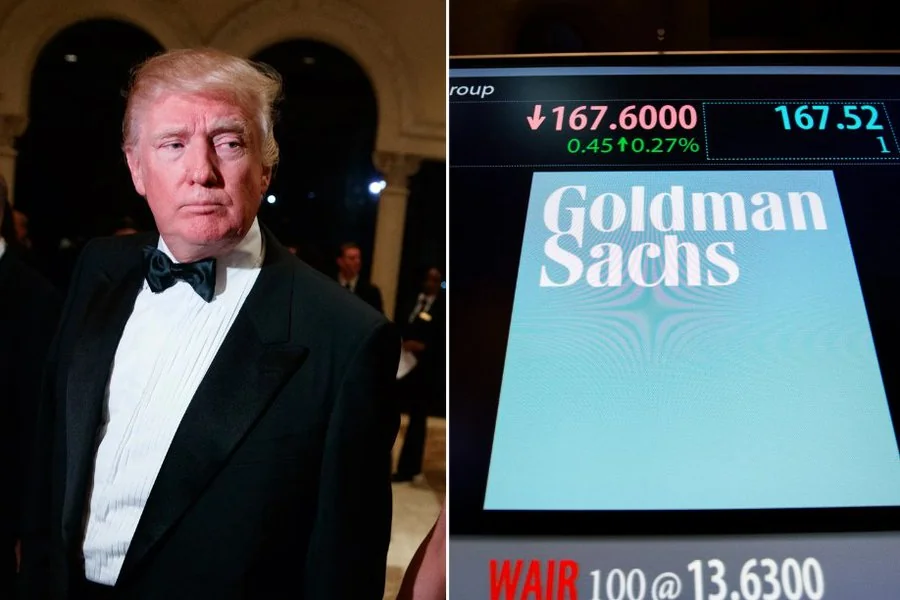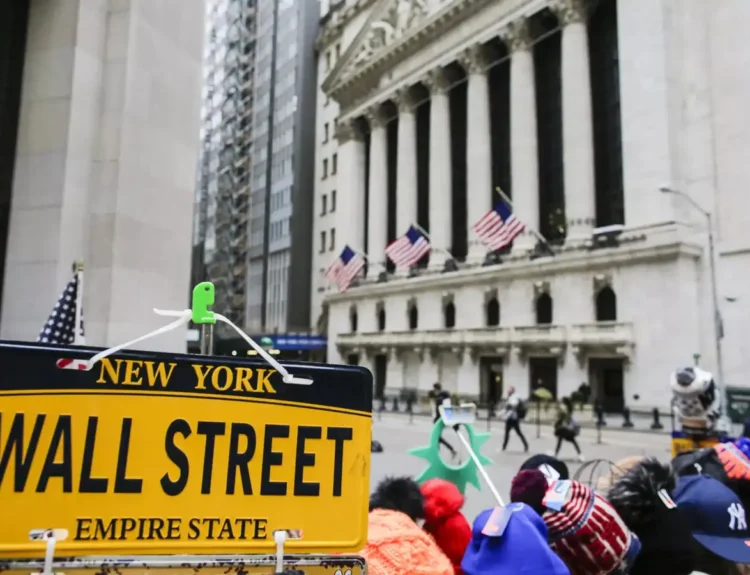Real quick: Let’s rewind to 2018. (Source: Reddit, r/XGramatikInsightsr/XGramatikInsights)
The Fed implemented a 75 basis point “insurance rate cut” after tariffs triggered financial conditions tightening.
Markets experienced significant volatility.
But that might look like a minor tremor compared to what’s coming…
The signs are already here:
U.S. markets have seen a 40% surge in trading volume since the election.
15.4 billion shares traded daily – the highest in years.
Wall Street is betting big on Trump’s return. But here’s what they’re missing:

Goldman’s analysis reveals multiple concerns:
• Potential universal tariffs
• Extension of 2017 tax cuts
• Additional personal tax cuts worth 0.2% of GDP
• Regulatory changes ahead
But there’s more to this story.
The first major risk? Tariffs.
Goldman estimates a 10% universal tariff could:
• Push inflation above 3% at peak
• Impact GDP growth by 0.75-1.25 percentage points
But that’s just the beginning..
These policy changes would trigger a chain reaction:
The Fed expects core PCE deflator to end 2025 at 2.5%, higher than previously projected. They’re now indicating a slower, more gradual series of rate cuts.
The fiscal implications are significant:

The nonpartisan Committee for a Responsible Federal Budget forecasts:
Trump’s proposals could add $7.75 trillion to the deficit over the next decade.
This creates a challenging dynamic:
Goldman expects three key changes in 2025:
• Rate cuts in March, June, and September
• GDP growth at 2.4%
• Core PCE dropping 0.3% by March
But there’s another ahead…
The House Republican leadership aims to cut $2.5 trillion in mandatory spending.
The Trump team suggests the Department of Government Efficiency could cut $2 trillion from the federal budget.
But Goldman warns these proposals may not materialize:

Goldman’s projections assume current conditions.
But their analysis suggests implementation of full policies could create unprecedented market conditions.
The key sectors facing changes:

Most vulnerable industries:
• Import-dependent consumer goods
• Renewable energy
• Tech companies
Potential winners:
• Banks
• Energy
• Industrial manufacturers










